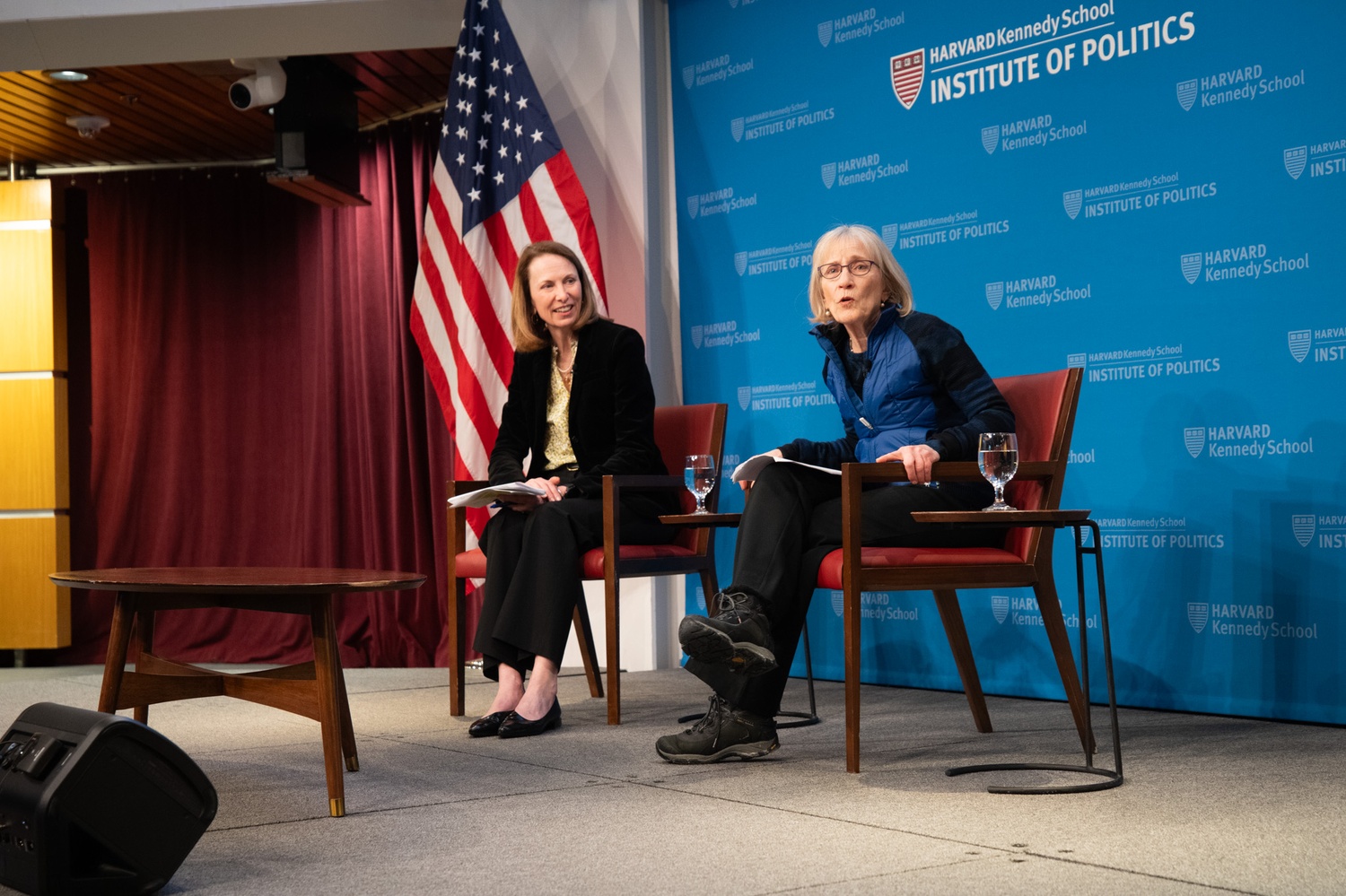
News
Summers Will Not Finish Semester of Teaching as Harvard Investigates Epstein Ties

News
Harvard College Students Report Favoring Divestment from Israel in HUA Survey

News
‘He Should Resign’: Harvard Undergrads Take Hard Line Against Summers Over Epstein Scandal

News
Harvard To Launch New Investigation Into Epstein’s Ties to Summers, Other University Affiliates

News
Harvard Students To Vote on Divestment From Israel in Inaugural HUA Election Survey
Nobel Laureate Claudia Goldin Warns of Federal Data Misuse at IOP Forum

Nobel laureate and Harvard Economics professor Claudia D. Goldin raised concerns about the Trump administration’s “misuse” and removal of government data at an Institute of Politics forum Tuesday, warning of dire consequences for researchers and policymakers.
“It’s extremely concerning,” Goldin said. “My biggest concern is that data are going to be misused — that the unemployment rate is going to be sort of reinterpreted.”
“Write to your Republican congressperson and say, ‘You are interested in various policies — how do you think we’re going to have school choice unless we know about schools?’” Goldin added.
Goldin won a 2023 Nobel Prize for documenting the history of female earnings and labor participation. But much of her work relies heavily on digging through data — including her research into gender disparities in the economics field.
To measure female representation in economics majors, for instance, Goldin used the Integrated Postsecondary Education Data System – a database that tracks trends in higher education and is now at risk of disappearing.
“I sat down and looked at the IPEDS numbers,” Goldin said. “And if you’re wondering what the IPEDS is, it’s one of the many pieces of information that you will not see again.”
Since the inauguration, federal agencies have taken down websites with data sets to comply with a sweeping executive order to remove “gender ideology” from websites. The data, relied on by social scientists for research, includes Census and economic data.
Goldin’s address, moderated by Economics professor Karen E. Dynan, was largely optimistic, despite her words of warning. Goldin celebrated the progress made in recent decades to close gender gaps in the workforce — which she catalogues in her forthcoming book, “Why Women Won.”
“We just have to realize that many of the gains that we have made can never be taken from us,” Goldin said. “Some can, but many cannot.”
“Whenever I present the paper, women say to me, ‘We won?’” Goldin added. “And I say, ‘Damn it, we did.’”
Goldin’s most recent research finds gender inequality issues are now more “within the labor market” compared to education because inequities in education and access are narrower.
According to Goldin’s research, modern wage gaps are linked to the birth of a woman’s first child. At that point, women take on less lucrative jobs, while men remain in high-earning positions. This leads to not only couple inequity, but gender inequity.
“We throw gender equity under the bus with it by having, in general, the women do the job that is the less greedy job, and the man do the job that’s the more greedy job,” Goldin said.
Responding to questions from the audience, Goldin focused heavily on future economic uncertainty, including the lagging labor participation rate in other countries and yet unknown implications of AI on the workforce.
“I don’t have a good answer to that because the technological changes that occurred in the last year — we haven’t yet fully absorbed,” Goldin said.
Goldin admitted that solving economic problems with policy is more complicated than waving a “magic wand.”
“I think unless we understand those divisions, unless we really pay attention to them, we’re never going to win even more.” Goldin said. “If some of us would like to have universal preschool, we have to understand what we have to give to those who don’t want to pay their tax dollars for universal preschool.”
—Staff writer Elise A. Spenner can be reached at elise.spenner@thecrimson.com. Follow her on X at @EliseSpenner.
Want to keep up with breaking news? Subscribe to our email newsletter.
